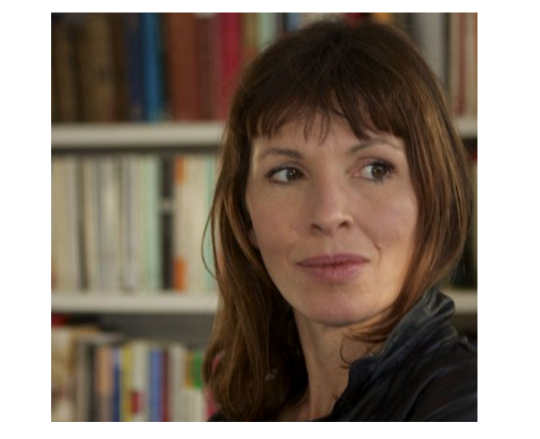
Go Forth is a series that offers a look into the publishing industry and contemporary small-press literature. See more of the series.
An Interview with Rachel Cusk
“I had come to believe more and more in the virtues of passivity, and of living a life as unmarked by self-will as possible,”—The narrator of Rachel Cusk’s eighth novel Outline.
Rachel Cusk is the author of eight works of fiction, and best known for her memoirs, which include A Life’s Work: On Becoming A Mother (2001), and Aftermath (2010), a portrait of her divorce from photographer Adrian Clarke and the breakdown of their family life. Her unsparing honesty has provoked equally unsparing hostility from many British critics and media—an article in The Spectator called Aftermath “mimsy, self-important, self-justifying emetic drivel” and Cusk herself “a self-obsessed, self-pitying idiot.” Speaking of her reaction to such critical—largely male—rage in an interview with the Guardian, Cusk said “Without wishing to sound melodramatic, it was creative death after Aftermath. That was the end. I was heading into total silence.”
Outline is a departure from the intensely revealing mode of Cusk’s previous work, a shift to what she calls an “annihilated perspective.” The narrator Faye is present but little is known about her. Beyond allusions to basic facts about her life—she is a novelist, a mother, recently divorced, and on her way to teach a creative writing course in Athens—she is without context or personal detail. The novel is almost entirely made up of encounters Faye has with other people—writers, editors, a Greek merchant who tells her about her previous marriages. We expect a confession from Faye which never comes.
Listening to other people describe their lives, Faye does not at any point disclose her own. She paraphrases her responses for the reader; we never directly hear her voice. The narrator’s sustained silence takes Outline into radically new terrain—dramatizing the never-ending flow of narrative that comprises the everyday experience, giving form to the constant process of self-invention that is quotidian conversation.
Over email, Cusk and I discussed fiction, memoir, and finding Outline’s form. Taking a while to respond to questions, she explained “I’ve been up to my neck with a writing project and have just emerged.”
—Alice Whitwham
I. A GROUP OF STRANGERS IN A BARREN ROOM
THE BELIEVER: How did you construct the conversations in Outline? What gets included, and what gets left out in a seemingly naturalistic work of fiction like this?
RACHEL CUSK: I made a formal decision about the novel at the beginning, which was that more or less everything should be contained...
You have reached your article limit
Sign up for a digital subscription and continue reading all new issues, plus our entire archives, for just $1.50/month.
Already a subscriber? Sign in




